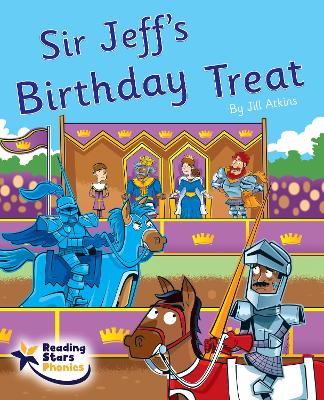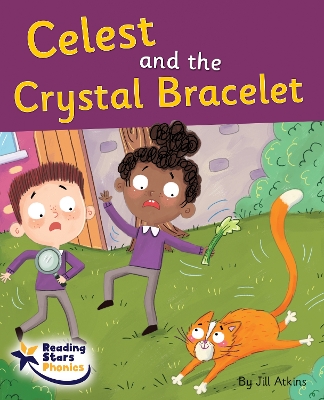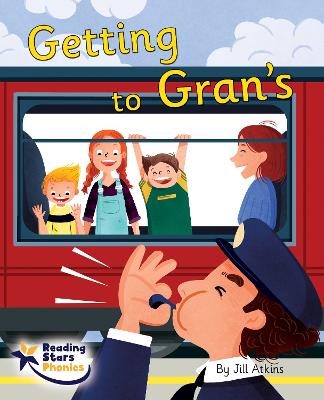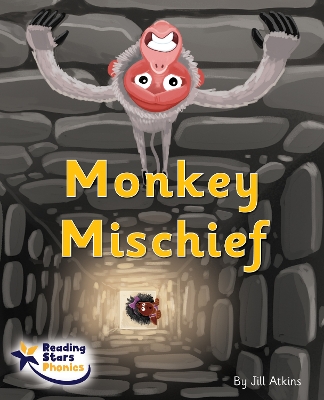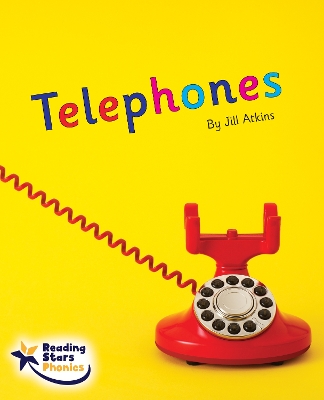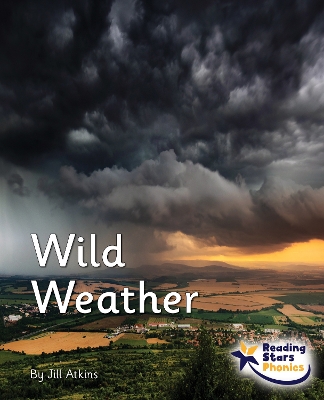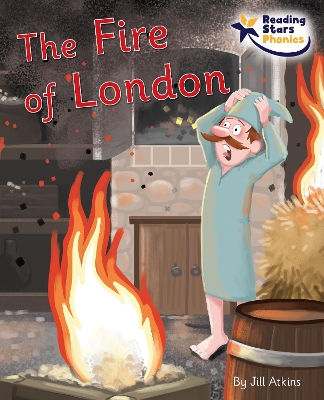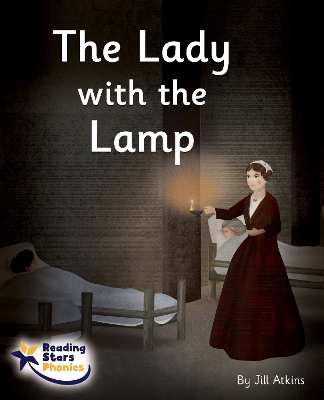Reading Stars Phonics
41 total works
Part of Reading Stars Phonics - our structured programme of fully decodable phonics readers to support the teaching of phonics using the UK Government's Letters and Sounds programme - Sir Jeff's Birthday Treat is a Phase 5 book.
It introduces some alternative spellings for phonemes: /ch/ (picture, catch), /j/ (fudge), /m/ (lamb), /n/ (gnat, knit), /r/ (wrap), /s/ (listen), and the common exception words looked, called, asked, who, thought, laughed, once.
Part of Reading Stars Phonics - our structured programme of fully decodable phonics readers to support the teaching of phonics using the UK Government's Letters and Sounds programme - Celest and the Crystal Bracelet is a Phase 5 book.
It introduces some alternative pronunciations of known graphemes for reading: a (fast, was), e (he), i (mind), o (no), u (unit, put), ow (snow), ea (head), er (her), ou (you), y (by, gym, very), ch (school, chef), c (cell), g (gent), ey (they), and the common exception words oh, their, Mrs, called, where, who, laughed, different, friends, once, please.
Part of Reading Stars Phonics - our structured programme of fully decodable phonics readers to support the teaching of phonics using the UK Government's Letters and Sounds programme - Getting to Gran's is a Phase 5 book.
It introduces some alternative spellings for phonemes: /ch/ (picture), /m/ (lamb), /n/ (gnat), /z/ (please), /u/ (some), /i/ (happy), /ear/ (here), /ar/ (father, half), /air/ (there, pear, bare), /or/ (all), and the common exception words oh, looked, asked, where, laughed.
Part of Reading Stars Phonics - our structured programme of fully decodable phonics readers to support the teaching of phonics using the UK Government's Letters and Sounds programme - Monkey Mischief is a Phase 5 book.
It introduces some alternative spellings for phonemes: /ch/ (picture, catch), /j/ (fudge), /m/ (lamb), /n/ (knit), /s/ (listen, house), /u/ (some), /i/ (happy, donkey), /ear/ (here, beer), /ar/ (father), and the common exception words their, looked, called, laughed, once.
Part of Reading Stars Phonics - our structured programme of fully decodable phonics readers to support the teaching of phonics using the UK Government's Letters and Sounds programme - Telephones is a Phase 5 book.
It introduces some alternative spellings for phonemes: /n/ (knit), /u/ (some), /i/ (happy, donkey), /or/ (all, four), /ur/ (learn, word), /oo/ (could, put), /ai/ (day, came), /ee/ (sea, these, happy, chief, key), and the common exception words people, Mr, called, thought, many, because, different, friends.
Part of Reading Stars Phonics - our structured programme of fully decodable phonics readers to support the teaching of phonics using the UK Government's Letters and Sounds programme - Wild Weather is a Phase 5 book.
It introduces some alternative pronunciations of known graphemes for reading: a (acorn, fast, was), e (he), i (mind), o (no), ow (snow), ea (head), ou (you, could, mould), y (by, gym), and the common exception words their, called, water, where, many, because, different, any, eyes.
Part of Reading Stars Phonics - our structured programme of fully decodable phonics readers to support the teaching of phonics using the UK Government's Letters and Sounds programme - The Fire of London is a Phase 5 book.
It introduces some alternative spellings for phonemes: /n/ (knit), /s/ (house), /z/ (please), /u/ (some), /i/ (happy), /ar/ (father), /or/ (all, four, caught), /oo/ (put), /ai/ (day, came), /ee/ (sea, happy), /igh/ (pie, by, like), /oa/ (low, toe, bone), /(y)oo/ (cue, tune), and the common exception words oh, their, people, called, asked, water, where, again, through, many, eyes.
Part of Reading Stars Phonics - our structured programme of fully decodable phonics readers to support the teaching of phonics using the UK Government's Letters and Sounds programme - The Lady with the Lamp is a Phase 5 book.
It introduces some alternative spellings for phonemes: /ch/ (catch), /n/ (knit), /s/ (house), /u/ (some), /i/ (happy, donkey), /ar/ (father), /air/ (there, bare), /or/ (all, four, caught), /ur/ (learn, work), and the common exception words people, Mr, where, thought, many, because, eyes.

